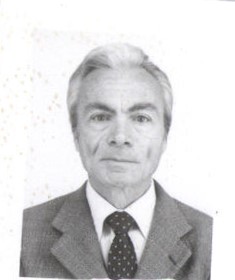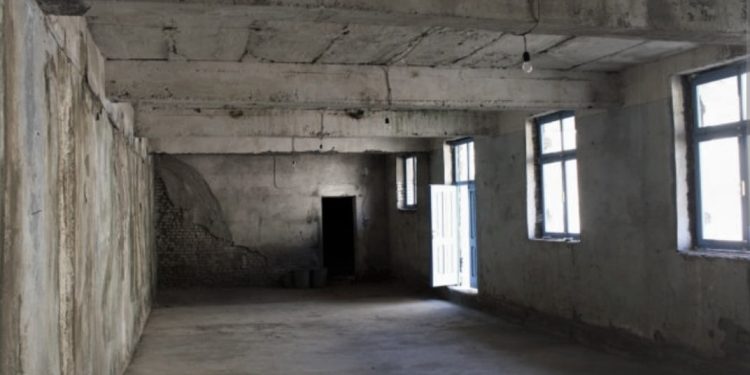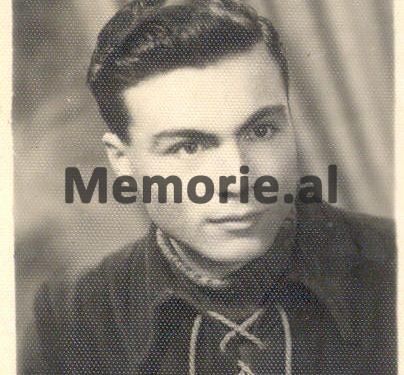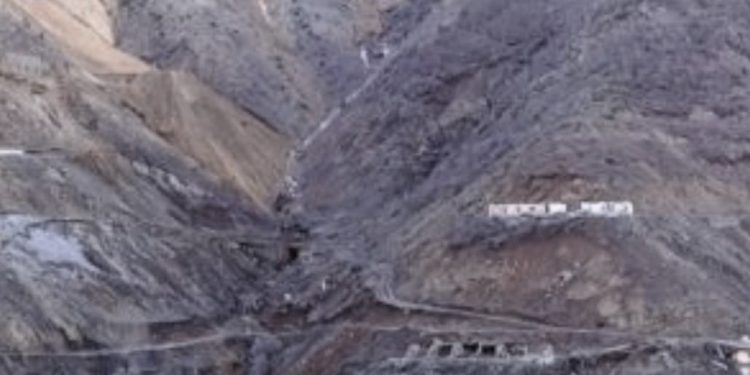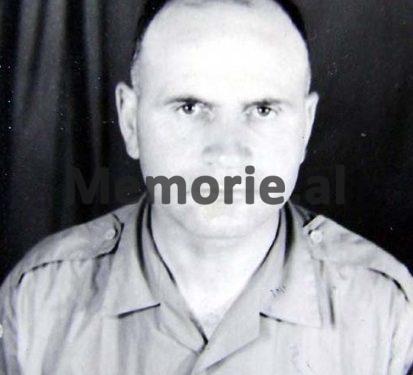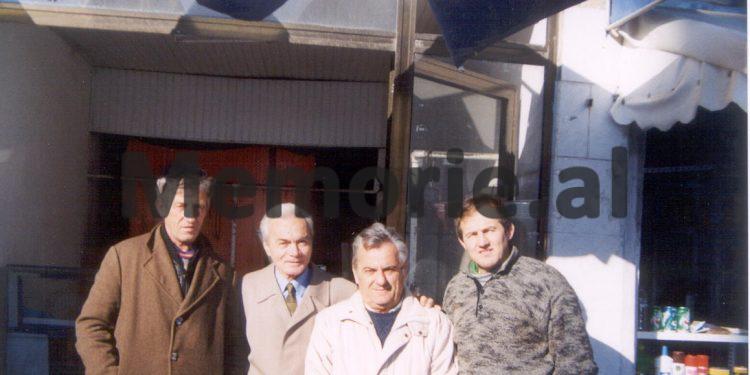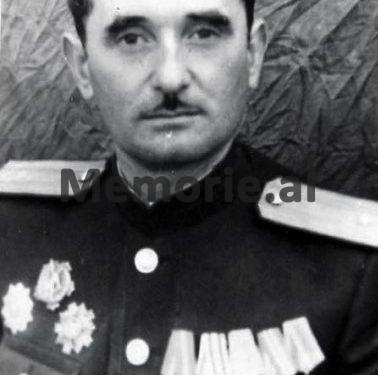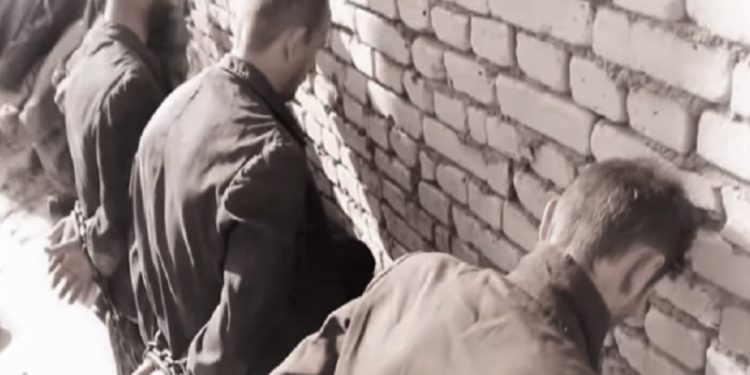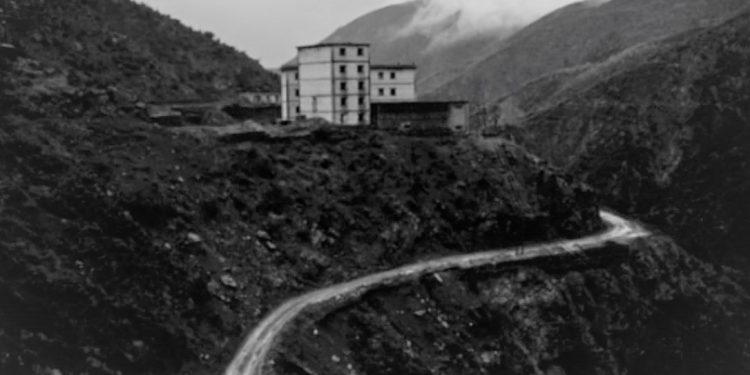By Tanush Kaso
Memorie.al/ Tanush Kaso was born in 1934 in Tirana where his father at that time served as a soldier of the Zogu Monarchy, but their origin is from Chameria. He graduated from the Pedagogical School of Elbasan and in the third year of the Language-History Faculty, he was arrested and sentenced to 13 years in political prison, accused of participating in an anti-communist group with social-democratic views, which also included Pjetër Arbnori, Uran Kalakulla etc. After the 90s, in addition to his involvement in the Association of Former Persecuted and Political Prisoners of Albania, he has published a number of articles in the press of the time as well as the books: “My War” poetry, (1994); “As with laughter”, satirical poem, (1996); “The ordeal of communist prisons”, (1998), etc. The text that we have selected to publish here is taken from the book “The Calvary of Communist Prisons”.
COMMISSIONER N…….
He was tall and thin, like a pine that has been struck by lightning and hollowed out. In the province of Korça, these trees corroded from the inside by fire are called zgrbonja. Therefore, as soon as some of our Korcar friends saw him, they baptized him with this name. His face was pale and always sullen, like the sky of Spaçi, where he had been appointed commissar of Ward 321, of the camp for political prisoners.
In this place high vigilance and iron discipline were required; therefore, they had chosen him as the most suitable man for these jobs, among many other officers of the Ministry of Internal Affairs. And they were not wrong. He was very diligent and dedicated in the services that belonged to him. Very serious with his subordinates and extremely bitter with the prisoners.
Always on duty. Three times a day he checked the fence with barbed wire and numerous bodyguards, around the galleries where he worked without interruption. It gave instructions on where the fence needed to be strengthened and where something needed to be changed. He controlled the implementation of his orders, with the strictness of an “SS” officer.
No one ever saw him laugh. There was never even any kind of smile on the face of that devil in an officer’s uniform. Only when he mocked the prisoners could his large protruding teeth be seen, like those of some prehistoric animal. From his military hat hung tufts of black hair that seemed to grow in a fertile field.
In his brain, all kinds of quotes by Enver Hoxha, Mao Zedong and the classics of Marxism-Leninism, such as: “The most dangerous enemy is the one who is forgotten”, “None mercy for the enemies of the class”!, “The class war continues even in communism.
It also develops in the consciousness of the Party member”, and others like these. But, those that now served as guides were two: “To create a suffocating atmosphere for class enemies”!, which Enver Hoxha had said and: “Prisoners must always be kept in a half-starved state”, as ordered Mao Zedong of the “big sister”, the People’s Republic of China.
The prisoners had psychologized from the beginning, what kind of person they would be dealing with. They foresaw that he would blacken their lives and would not even let them breathe. They saw this already in his first presentation speech, when he used terms like: “There will be no spring for you”!, “Kalashnikov will work for us, no matter what the situation”, as well as several quotes and other expressions, which he held close to his heart and which he would often repeat in the speeches he made from time to time before the prisoners.
“Zgerbonja” started the “educational work” by changing some points of the regulation, to the detriment of the prisoners. To exhaust them, introduce morning gymnastics, every day, before leaving for work; (as if working in the mine galleries was not “gymnastics” of the captain). He set a very limited schedule for staying in the silos. So most of the free time had to be spent outside the dormitories; even when the wind blew, even when it rained and snowed, even when the sun burned and scorched him.
If you were tired or sick and you went into the shed to rest, you were sentenced to a month of isolation in a “dungeon” (cell), where food, tobacco, sleeping clothes and everything else necessary were not allowed. Only twice a day, the convict was given two spoons of soup and a piece of bread and could go out to relieve himself, accompanied by a police officer.
In the evening, he was given only a blanket, enough to spend the night, and was taken away early in the morning, before light. Previously, those who were serving their sentence in the dungeon were left with a blanket during the day, but according to the “zrbonja”, this was too much of a comfort. Therefore, he ordered that it should not be allowed even on cold winter days.
Ordered the Coats and Woolen of the camp, to require more accounts for work. Anyone who did not meet the set number of copper and pyrite wagons had to spend two consecutive shifts underground, with a policeman on his head, until he met the norm. Otherwise, he was sentenced to one to three months of solitary confinement, at night in a cell and during the day at work, supervised by the police. This was a “new invention” of the scrabble, for realizing and surpassing the plan for the production of copper ore and pyrite, for which “the motherland needed”.
Meetings with families were limited. The hours of “political work” were added, where it was mandatory to listen to the daily “Voice of the People” – organ of the Central Committee of the ALP, as well as the “works” of “Comrade Enver”, which were read by any prisoner who had “good tone. There wasn’t even time left to wash clothes because often even Sunday was a working day, with the pretext that “the plan was not carried out”.
The “devil” of Spaç pit found other ways to torture the prisoners as much as possible, such as adding appeals (i.e. lining up and counting the prisoners), surprise control of barracks and loot warehouses personal etc. He did not want to leave the “enemies” any free time after work, so that they would not do “agitation and propaganda” and not engage in “hostile activities” and there, in prison, for which several people had been re-convicted.
It was understood that he had received the “carta bianca” from the superiors of Tirana, to do whatever he wanted with the prisoners of Spaçi, to defeat them morally and physically and to turn them into working animals; to remove any possibility of recovery and organization, if one day they would manage to get out of that hell, after serving the long sentences of tens of years of imprisonment.
“What the hell!…” – vented the Korcarians – who brought us this frowning face? Come on, skunk, come on… before you close the door…”?!
Often times, the commissar answered the prisoners’ ironic and “spiky” questions emphatically and with standard phrases, such as: “The Party knows!”, “We know!”, “The command knows.” What’s more, he liked to use a typical expression of the Korca region: “It’s Zylal’s job, how much cabbage he puts on the horse…”! This statement, even though it had become monotonous, seemed to amuse the prisoners and make them laugh.
– “Moo, why do you whiten your teeth”? – Shouted the commissar – “Haven’t their mares foaled? You better keep your head on your shoulders…”!
The prisoners had made these peasant sayings their own and repeated them for humor, to each other, sometimes out of place:
– “How many wagons did you take out today?” – asked one. – “You don’t need anything”, – answered the other – “you carry your head on your shoulders”! That “it is Zylal’s job, how much cabbage he puts on the horse”! And that’s how they shot the gas, no matter how tired and bored they were. Humor was spiritual food for the prisoners. He was not absent there either, in the dark galleries of Spaci, and it seemed as if he was keeping those exhausted people alive.
– Slowly even the nickname “Zrbonjë”, of the commissar, was replaced by the name “Zylal”. During conversations with each other, the prisoners found it easier to say: “Zylali is coming”!, “Zylali ordered this”, “I took permission from Zylali”, “Zylali punished me”, etc…!
I also have a special memory of this red commissar. It was the winter of 1970, when he sentenced me to two consecutive months of solitary confinement because I refused to work in the pyrite galleries, where – due to the heat and gases – I felt weak in the heart and my nose was bleeding. For this reason, I insisted on a visit and medical help from specialist doctors who were in Rrëshen and Tirana.
But instead of taking me there, where the sick were sometimes sent for examination, Zylali saw fit to put me in the cell. This, according to him, was “just enough to take up space and not ask for rent anymore”, as I wanted to “keep my head on my shoulder”.
Many other co-sufferers have such memories from him. Therefore, it would not even be worth mentioning my case, if I had not experienced at that time, an unusual event.
On one of those unforgettable winter days, the sepulchral silence of that Spač gorge was broken by some screams, which, at first, I couldn’t tell if they were animal or human. Driven by unbridled curiosity, I rested my eye on a crack in the dungeon door, and in that piece of wintry landscape, with a gray sky, I saw a startling scene.
A herd of animals in uniforms had put two prisoners in front – Rexhe Alina and Lefter Baldavani – and were bringing them from work screaming and beating them wildly. “They must have tried to escape” – I thought – that’s why the policemen and officers, led by Zylal, were completely furious. They had tied their hands from behind and were falling where they could and as hard as they could, with military shoes and boots as well as the tails of shovels, which they carried in their hands.
Class hatred, which the commissar incited more with his hysterical screams, had turned them into wolves. Zylal’s voice echoed in the whole valley: “Fuck you pigs! No mercy for enemies!… Ah, what have you done to yourself, you bastard…! Now you will see the ass of the fly…”! He also ran after them and stretched out those long saddles, to kick their buttocks, legs and everywhere…!
Trying to avoid the barrage of blows of the “wolf brothers”, the two unfortunates ran as far as they could, in the direction of the camp, through the winding and bushy footpath that ran along the side of the hill. The commissar was panting from fatigue and did not stop cursing the peasants…!
From inside my cell, I looked with deep anxiety and pity at my fellow sufferers, just as a tied bull sees his fellows being led to the slaughter. For a moment, I saw that Lefter stumble and fall to the ground. The kicks and punches of the barbarians fell wildly upon him. They immediately lifted him up, as he gets up after being hit, a fallen carriage horse… his clothes were torn and he was bleeding all over… Rexha’s eye was also swollen and blood was flowing from his hands tied with wire…
* * *
It had been several years since I had been released; and one day, while I was hurrying to go to work, in the Valias mine, on one of the main streets of Tirana, I almost bumped into Zylal. He was dressed as a civilian, in a dark gray suit and a Mao Zedong-style cap, usually worn by veterans and retired soldiers.
I don’t know if he recognized me after so many years, when I had exchanged the “heavy prison clothes” for Valias’ miner’s sweatshirt. I did not notice any change in his mavruge face, in his scrawny body, in his silent and lonely posture, in his military-like step. Under the sky of Tirana, it was as gloomy as under the sky of Spaçi. Nothing could be read in that earth-colored face, as if from the dead.
Turning away from him, I instinctively turned my head back once more. I felt an unbounded hatred for him, because he reminded me of the ten years lost in prison, of my youth; the endless suffering caused by executioners like him… I had a foolish desire to tear that vile creature to the ground, to tear it apart like a wolf on its prey. This thirst for punishment was increased because I had learned from a recently released prisoner that our good friend, Lefter Balldavani, would never see the light of freedom again…! He had died in prison… under very sad circumstances…!
* * *
Two years ago, I saw “Zrbonja” again in Tirana. The barista was calm and unruffled, dressed in a dark blue suit. This time, he wore a “republic” hat on his head. He had taken on the appearance of a majestic lord…! – It seems to me that he is doing well even in “democracy”, our commissar…- I said to one of my fellow sufferers.
– “Why shouldn’t he walk? – he returned to me – His sons have become billionaires today. They have privatized, against a symbolic payment, one of the biggest stores, a very profitable business. With the help of friends and money, which they have in bulk, they took loans with leverage and built in Tirana and Durrës places of fantastic beauty, which are frequented without interruption, day and night…! “Zylali” has been for tourism in Italy, Spain and even America, which he hated so much…”!
I almost lost a drop, from what I heard. I felt a weakening of the heart and a lack of breath… like then, in the pyrite galleries, in Spači e Mirdita…! Memorie.al




